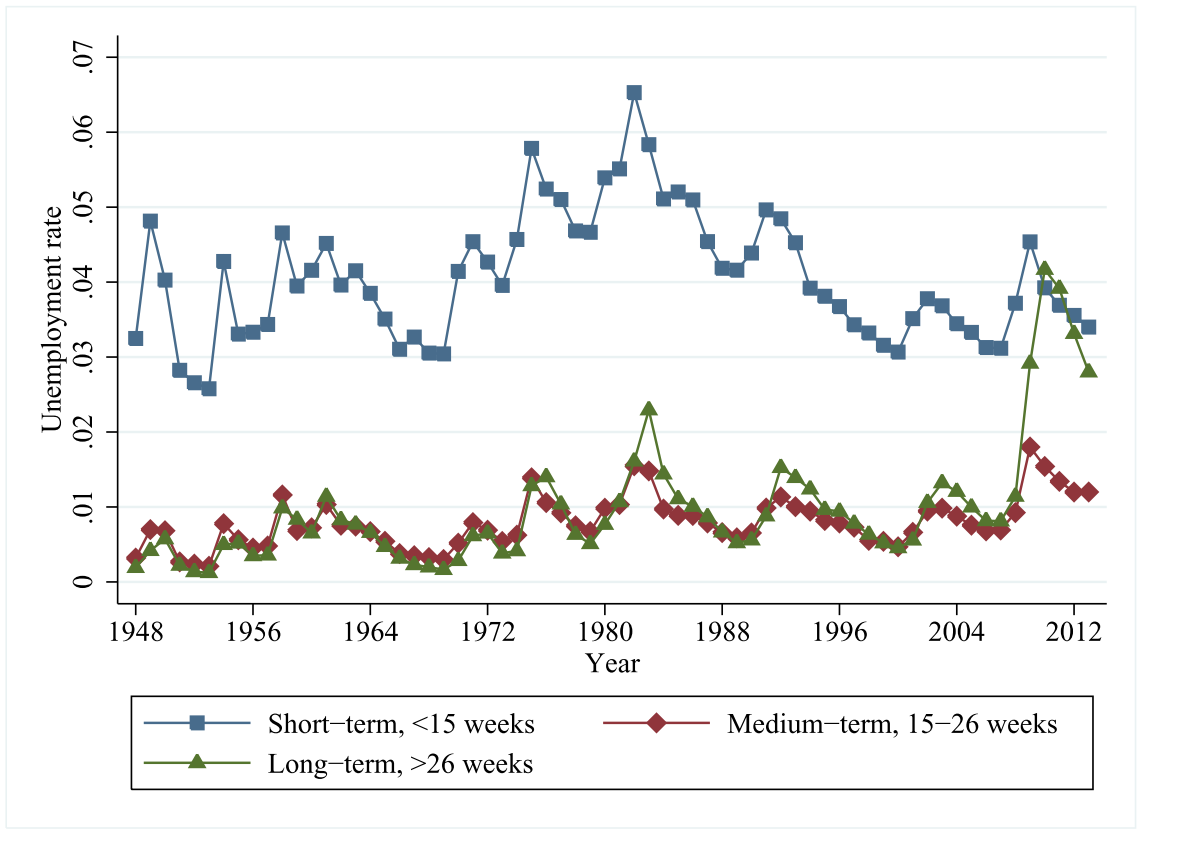Kroft et al document the raise of long-term unemployed in the US during the recent crises. This is an impressive figure from their paper:

They show that the raise does not come from compositional effects. However, they cannot find the reason for this phenomenon. For some reason, apparently, long-term unemployed are less likely to find a job, and hence their stock accumulates.
Potential reasons I could think of are
- Human capital deterioration
- Discrimination of employers
- Shrinking motivation of searching
What other reasons does the literature find? Is there empirical support for any of this?
some workers. $\endgroup$